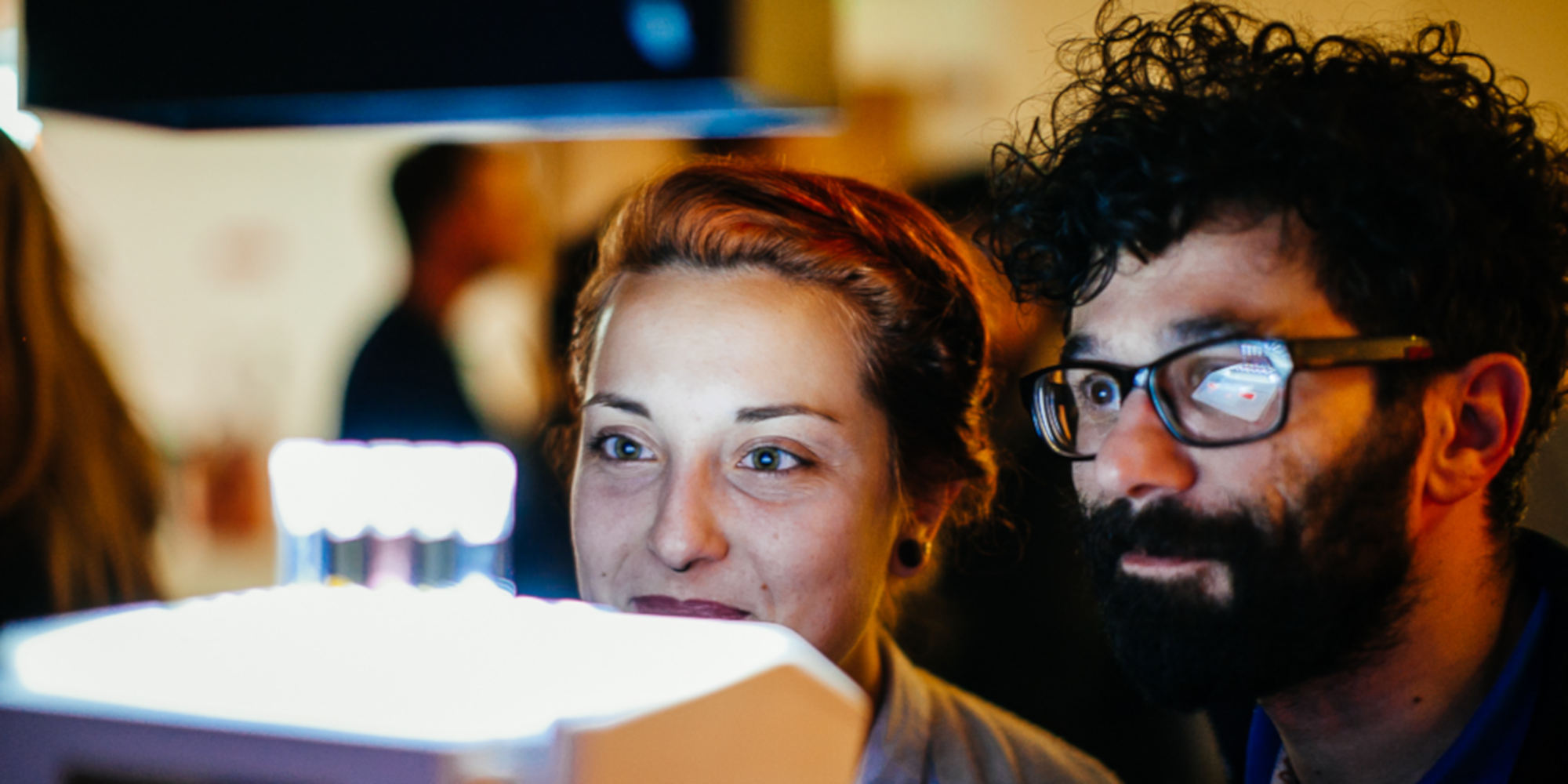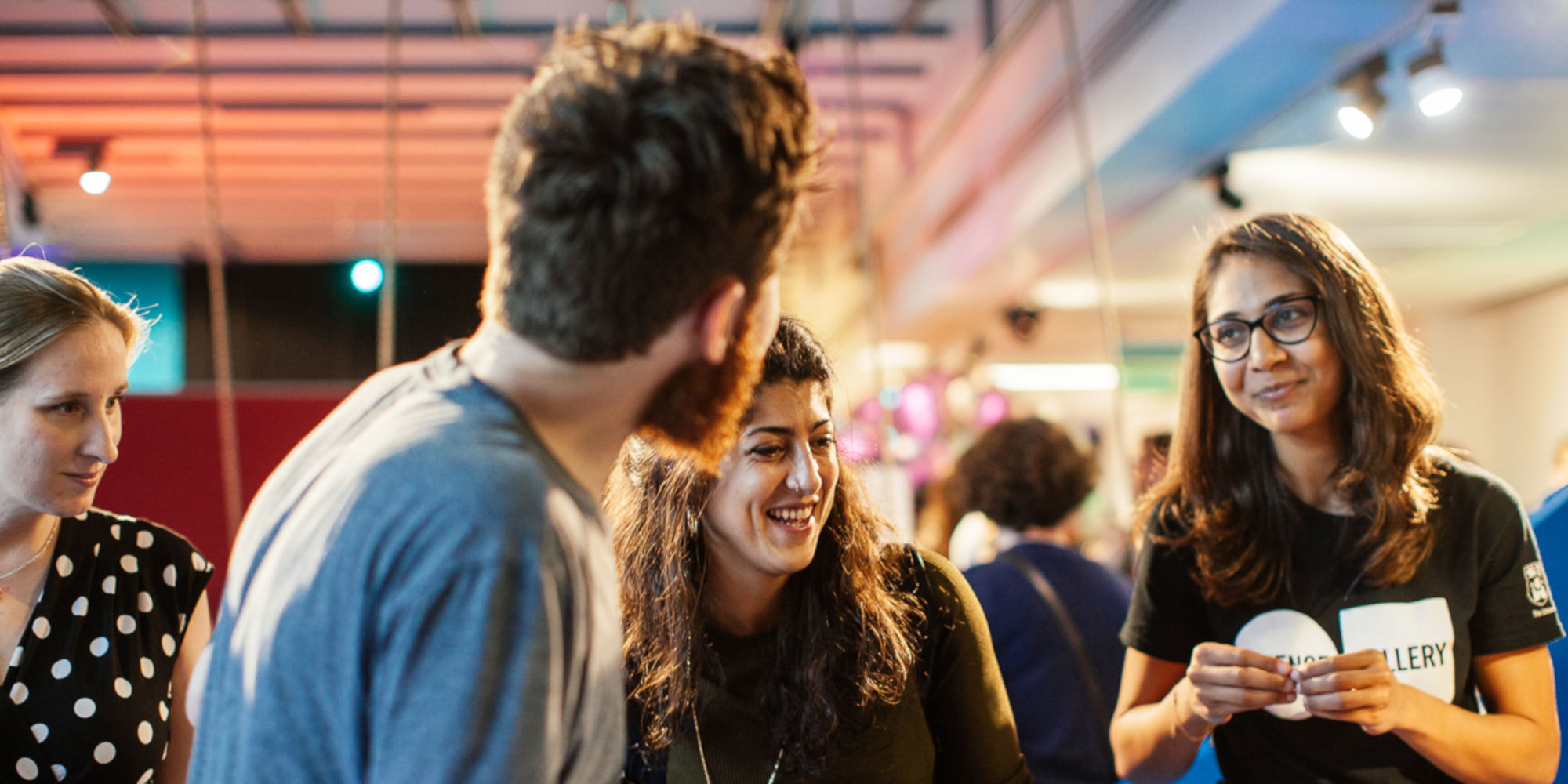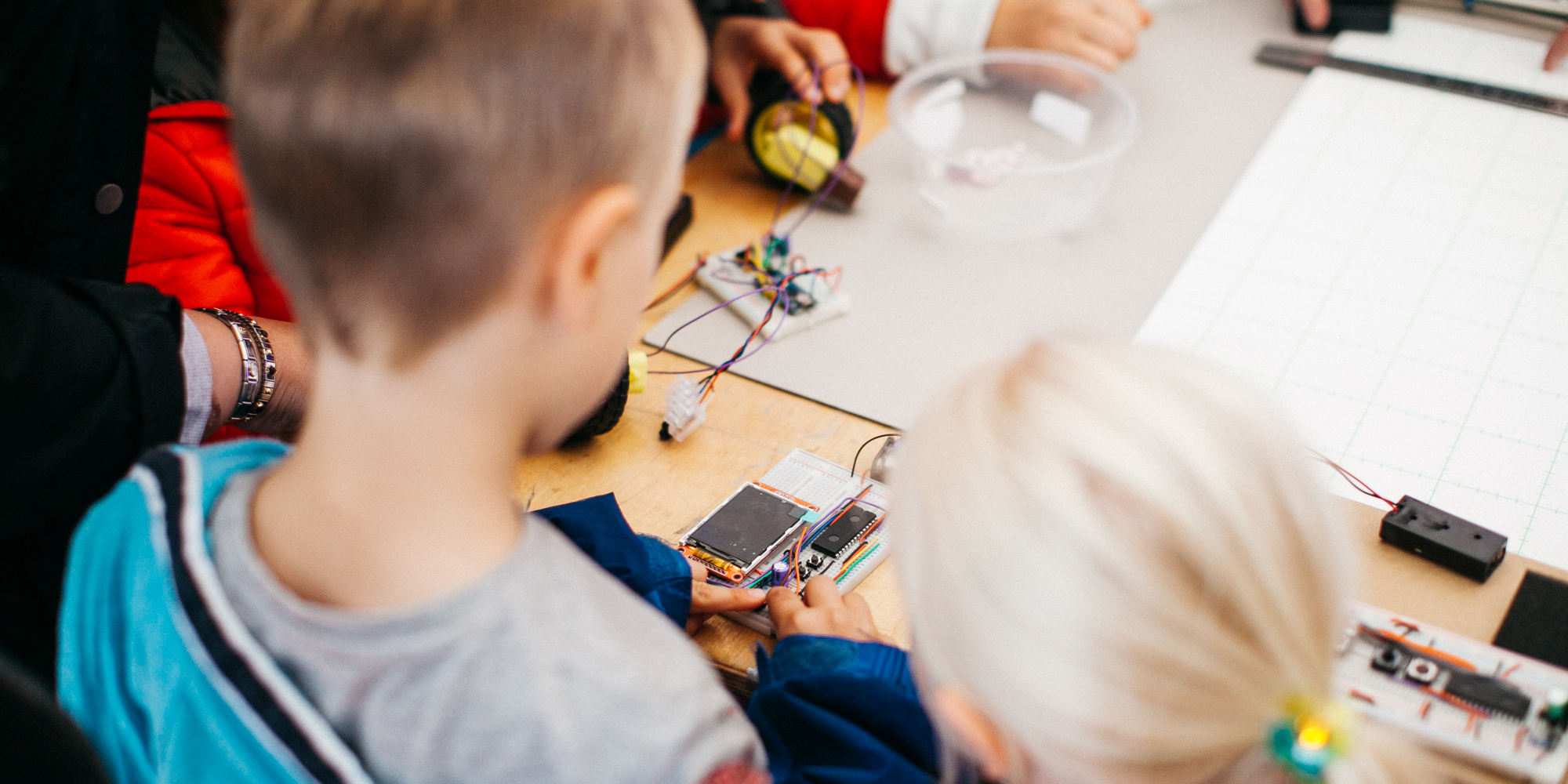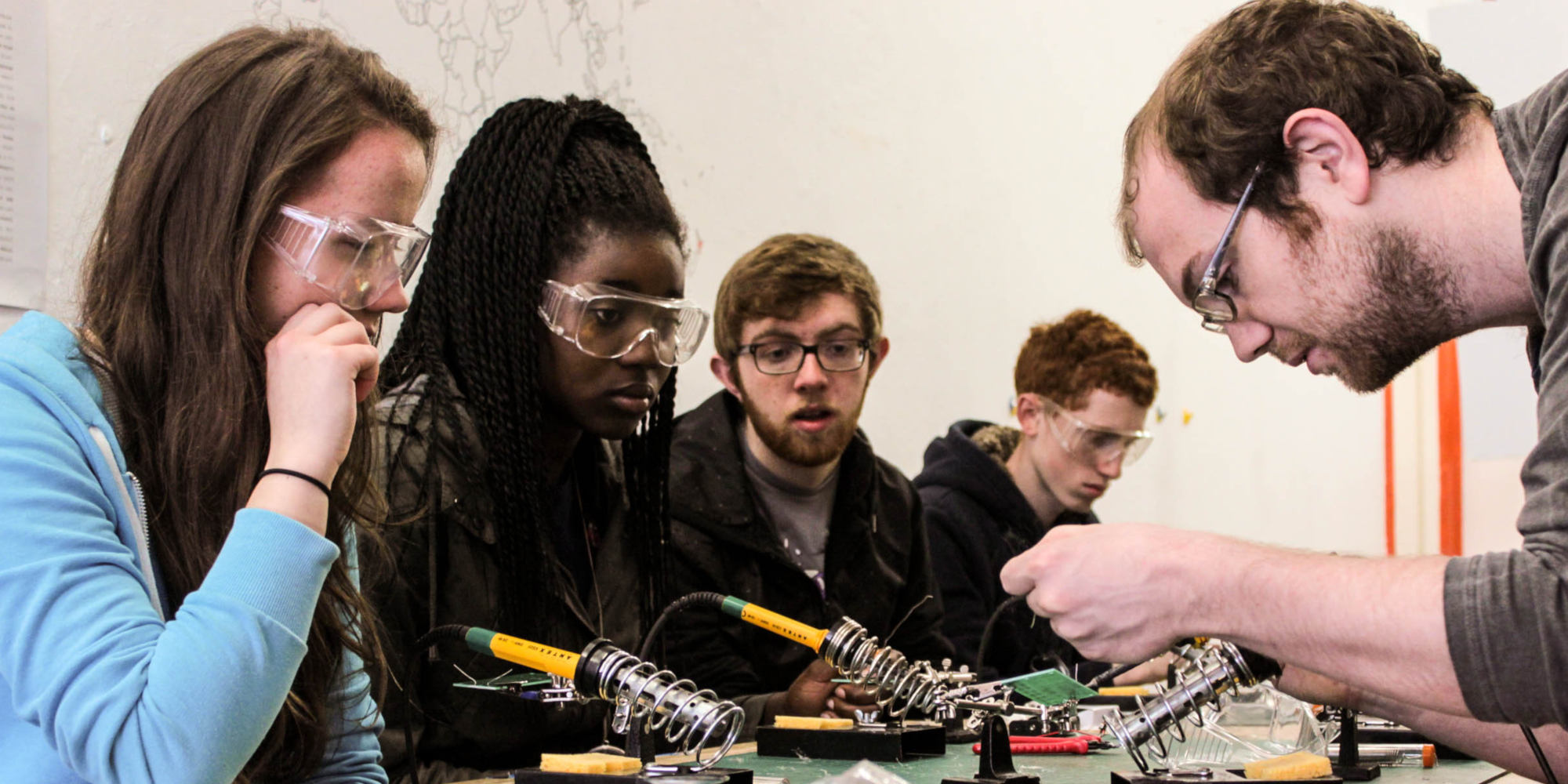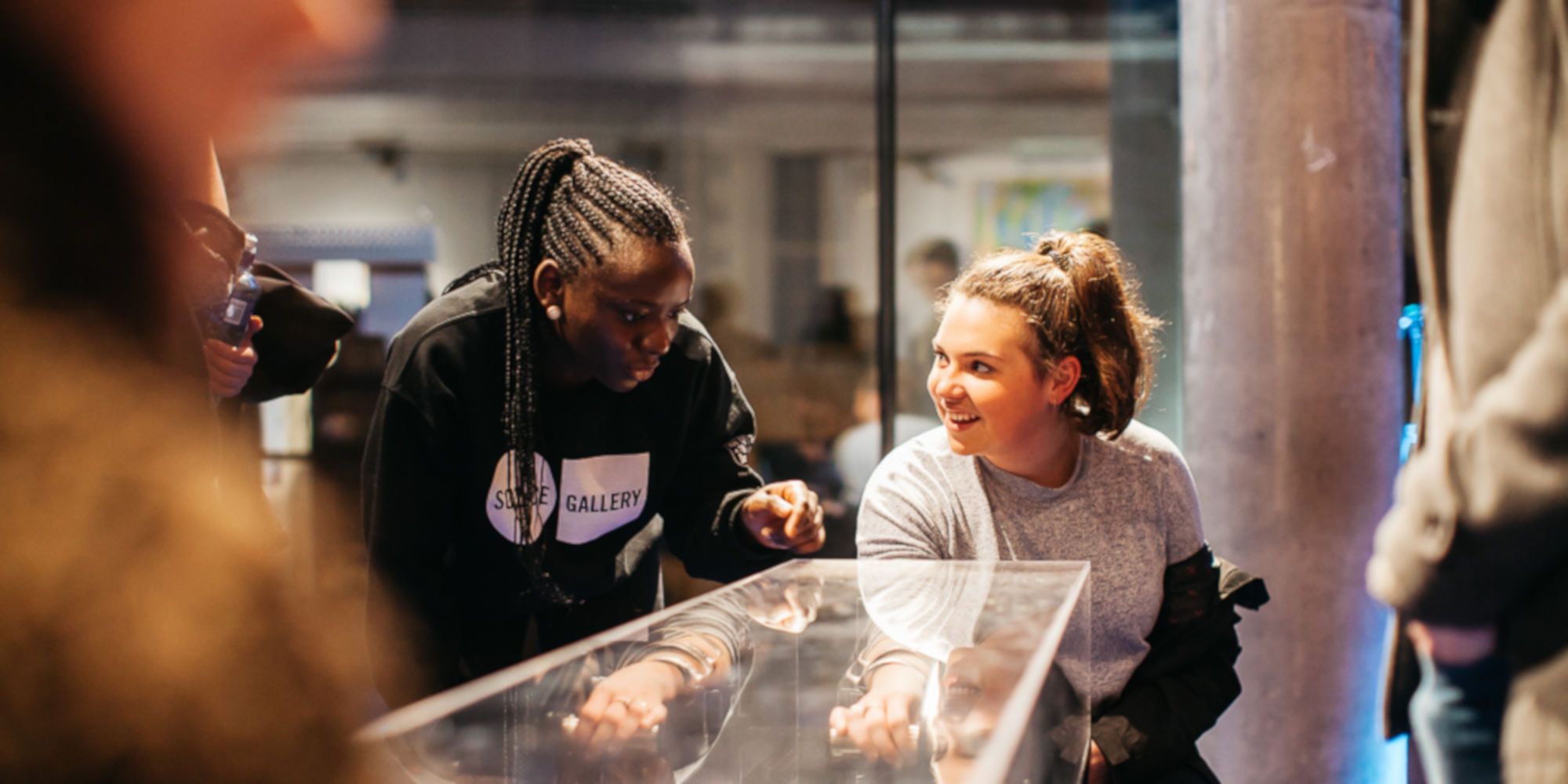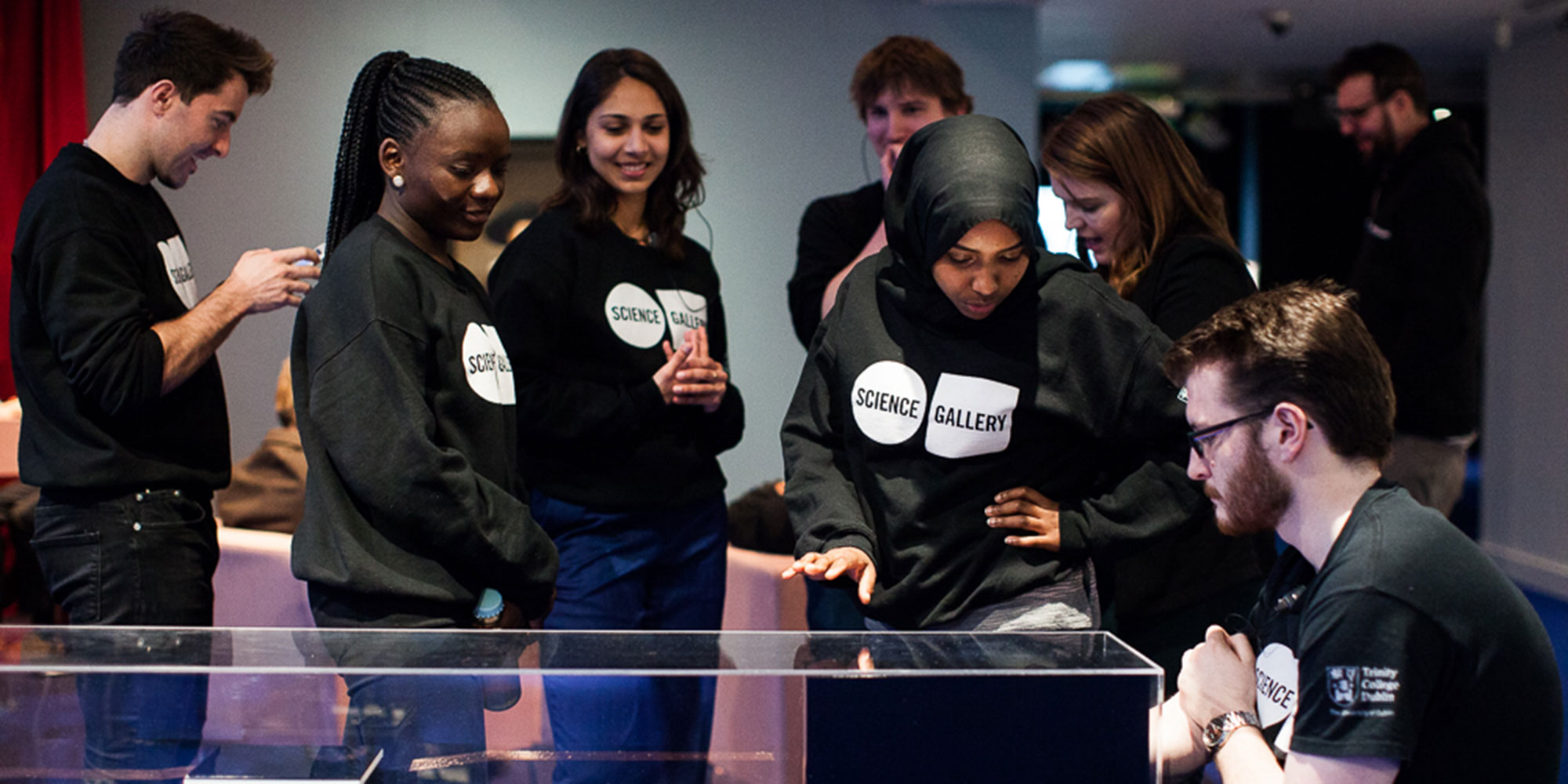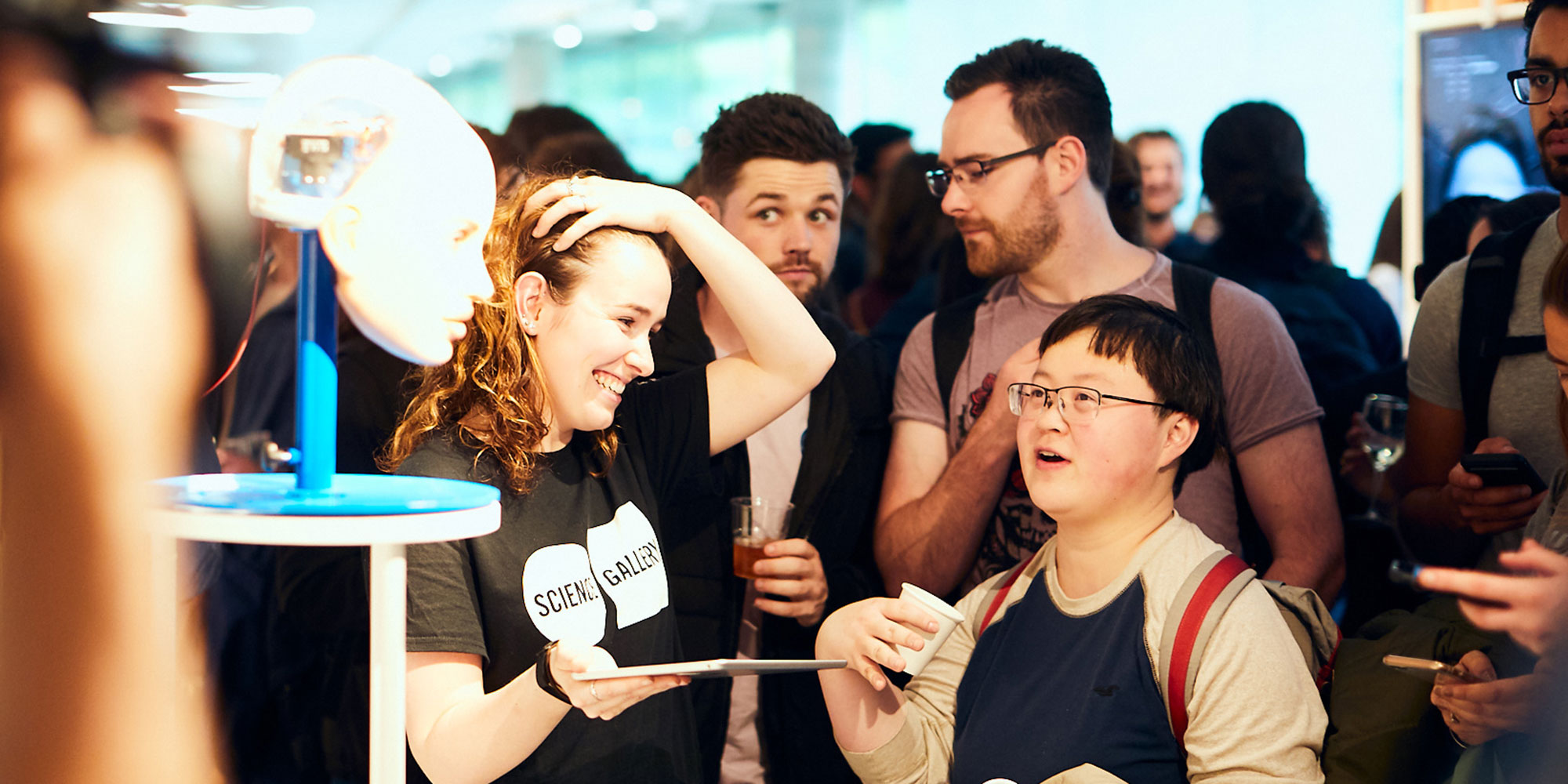Science Gallery Dublin was founded at Trinity College Dublin, the University of Dublin in 2008, with a mission to ignite creativity and discovery where science and art collide.
Science Gallery engages a core audience of 15 -25 year olds through transdisciplinary exhibitions, events and educational programmes within a free-entry social space. Using performance and interactive experiences as a key for audience engagement, Science Gallery also brokers links within its local communities by building relationships with cultural organisations and venues, schools and community groups, higher education institutes, local industry and public bodies/organisations.
Science Gallery co-creates work with scientists, artists and youth advisors that respond to global challenges through a combination of art, science and technology based initiatives. A key consideration is maintaining balanced engagement from diverse contributors and audiences using a cross-sector ‘common’ language to open up conversation, allowing equity of access to the methods and perspectives from all social actors.
Following an approach by several other universities, Trinity College Dublin determined that there was significant interest in sharing knowledge about the Science Gallery model globally. In 2012, a spinoff company, Science Gallery International (SGI) was created, charged with finding and developing members for the Science Gallery Network. SGI provides business consultation, training and centralised resources for the Network of eight members, which include: Emory University (Atlanta), the Indian Institute of Science (Bengaluru), Michigan State University (Detroit), Trinity College Dublin, King’s College London, the University of Melbourne, Erasmus MC (Rotterdam), and Ca’ Foscari University of Venice.
Science Gallery methods support the notion that transdisciplinary approaches to education and innovation are fundamental to future-proofing the university; sparking catalytic conversations, connections and collaborations across networks is instrumental to develop and implement these approaches. Science Gallery Network programmes feature emerging research and ideas from the worlds of science, art, design and technology, addressing topics and challenges that are both locally and globally relevant.
The major driver for establishing this approach remains institutional; within Science Gallery Dublin it aligns strongly with the recent Trinity Charter for Research Excellence, in particular the strands: “Engage Profoundly with our Publics”, “Broaden our Local and Global Impact”, and “Harness our Collective Expertise for the Greater Good”.
The metaphor of Science Gallery as a gateway or “porous membrane” between university and city is a unique attribute of this approach and allows the organisation to hold a dual role, respected in both cultural and academic spheres. This also reflects the role of Science Gallery as an important connector between the university and various local community stakeholders, breaking down traditional barriers to accessing higher education.
The collaborative work of the Science Gallery Network adds value to the host institution through an engaging programme for young people, with transdisciplinary thinking and approaches to address current global and locally relevant challenges. This approach opens up the conversation about the future of society, and the intersectional roles that the arts, science and technology can play in addressing these challenges. It creates an accessible opportunity for university staff to explore transdisciplinary projects which are facilitated and platformed by Science Gallery.
The Science Gallery Network has expanded year on year, reaching eight members worldwide within eight years. This has resulted in over 6 million people engaged worldwide and 380,000 visitors to Science Gallery Dublin in 2018.
SCIENCE GALLERY STEAM APPROACHES:
Exhibitions, Events & Informal Learning
Science Gallery Dublin’s public programme explores issues and topics at the intersection of art, science and society through exhibitions, events and informal learning programmes. These are designed with and for our core community – young people, researchers, artists, and industry partners, among others. The programme supports the development of transdisciplinary ideas in a creative and dynamic environment by facilitating interaction between diverse groups, allowing anyone to consider themselves a scientist and an artist.
The Mediator Programme
The mediator programme is a particular approach in Science Gallery Dublin and across the Science Gallery Network where young people facilitate conversations and dialogue throughout the exhibition space. Mediators are young adults, drawn from a variety of backgrounds, and are typically current undergraduate or postgraduate students. The mediator role is a part-time, paid position, and the experience can complement and augment their academic or career progression. Within the context of the exhibition theme and specific artworks, the mediators ask questions, trigger debate, tell stories, give tours, listen and facilitate the visitor experience. They are artists, scientists, provocateurs, debate partners, science communicators and tour guides. The mediator approach steers away from traditional didactic engagement, instead the two way participatory experience creates an accessible pathway for the public to explore science and art from their perspectives. This participation gives the public a chance to challenge and be critical of the science generating more interest and understanding of the specific question, the scientific inquiry, and the collaborative process
Idea Translation Lab
The Idea Translation Lab is a transdisciplinary elective module delivered by Science Gallery Dublin for undergraduate students in Trinity College Dublin. The module demonstrates STEAM learning by encouraging collaborative work and creative thinking with the aim of generating solutions to contemporary societal problems.
Students engage with a varied curriculum, diverse pedagogies and ‘lab’ sessions to experiment, design and develop prototypes which are presented and exhibited as part of their learning. Teaching and learning strategies are innovative, taking on board the diversity of students on the programme and their previous knowledge and understanding.
The outcome enables students to work independently, develop skills such as critical and analytical thinking, while encouraging creativity and imaginative work. The assessment strategy bridges practice and theory by providing opportunities to draw on research skills, academic content and reflection alongside making, design and communication skills. Students are required to explore the social, scientific and cultural environment in which they are working, supported by an understanding of ethics, public policy and the commercial significance and potential of their ideas.
Project Credits / Acknowledgements
This project is included within the framework of STEAM INC that has been funded with the support of the European Union and the Erasmus+ Programme.
